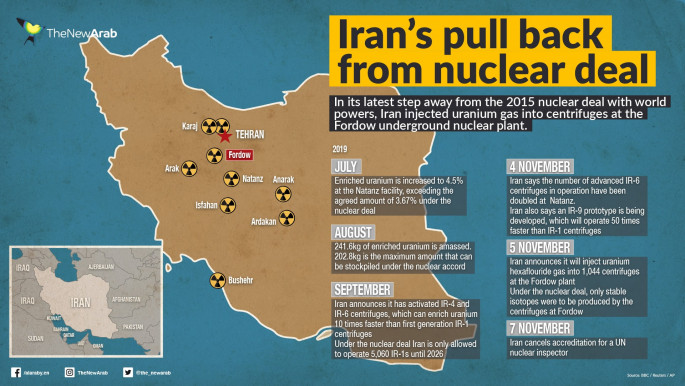US Biden administration, Iran already in talks for 'weeks' over nuclear deal: report
Talks between representatives from the new Biden administration and Iranian government officials regarding a resumption of the Iran nuclear deal have been ongoing for three weeks, according to a report in Le Figaro.
Iran’s UN ambassador, Majid Takht-Ravanchi, has reportedly been conducting talks in New York with unnamed figures from Biden’s staff.
A source close to the Iranian government was quoted by the French newspaper as saying that “we will know quickly whether the talks were successful or not.”
During the meeting, the Iranian side reportedly expressed their willingness to comply with the agreement, if the US also acts in kind by relaxing the sanctions on the country.
The other signatories to the JCPOA were neither present for, or aware of, the meetings, and the US has not confirmed the meeting’s existence, according to the report.
The Joint Comprehensive Plan of Action (JCPOA) was signed in October 2015 by China, France, Russia, United Kingdom, United States, and Germany. In exchange for a relaxation of sanctions, Iran agreed to rollback its nuclear programme and reduce its stockpiles.
In 2018, the Trump administration withdrew from the deal and reimposed sanctions. Iran responded by increasing nuclear activity.
The Le Figaro source revealed that should the two countries meet in an official capacity, and Iran agrees to rejoin, the US will agree to remove sanctions related oil sales.
Remaining sanctions will stay in place until the start of a second round of talks. These will focus on Iran’s ballistic missile programme and its activities in the region, according to the source.
 |
| Click image to enlarge |
In the run up to November’s election, the Biden administration made no secret about their desire to rejoin the JCPOA.
In September 2020, Biden penned an op-ed for CNN in which he said that he would “offer Tehran a credible path back to diplomacy,” and, “strengthen and extend the nuclear deal’s provisions, while also addressing other issues of concern,” specifically, Iran’s human rights record and destabilising activities in the region.
A commitment to rejoining the deal was also evident in his appointments of top diplomats, including, Jake Sullivan to lead the National Security Council, Wendy Sherman as the Deputy Secretary of State, and William Burns as head of the CIA.
All these figures played a crucial role in the signing of the original deal in 2015.
"Iranian Foreign Minister Mohammad Javad Zarif spent hours with them in 2014 and 2015. They know each other by heart,” said the source.
Read more: Is Iran's nuclear deal still viable?
In her very first press conference, White House Press Secretary Jen Psaki said: “The president has made clear that he believes that through follow-on diplomacy, the United States seeks to lengthen and strengthen nuclear constraints on Iran and address other issues of concern. Iran must resume compliance with significant nuclear constraints under the deal in order for that to proceed.”
Following Wednesday’s inauguration, Iranian Foreign Ministry spokesman Saeed Khatibzadeh condemned the diplomacy of the former administration, but warned “that only the US can fix itself - in practice; not just words.”
While anticipation of a diplomatic breakthrough is high, expectations were tempered slightly by Biden’s nomination for US Director of National Intelligence Avril Haines.
Speaking before the US Senate Intelligence Committee on Tuesday, Haines said that the US is “a long ways” from rejoining the Iran nuclear deal.
Follow us on Facebook, Twitter and Instagram to stay connected
![Rouhani talks about Biden [Getty] Rouhani talks about Biden [Getty]](/sites/default/files/styles/large_16_9/public/media/images/899AA901-D40B-4043-AE85-05B35C93180D.jpg?h=d1cb525d&itok=fgzgs57L)

![The White House Correspondents' dinner is seeing renewed scrutiny amid Israel's war in Gaza. [Brooke Anderson/The New Arab]](/sites/default/files/styles/image_212x120/public/2024-04/IMG_5497.jpg?h=71976bb4&itok=TX4OspBM)